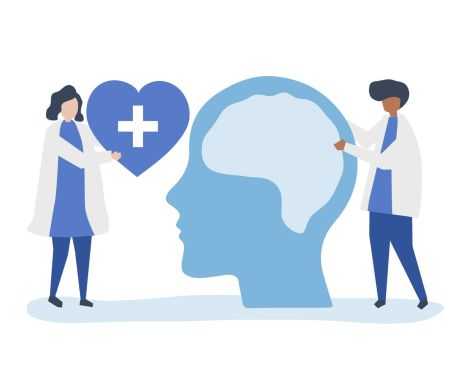Integrating primary health care with mental health is crucial for several reasons:
Holistic Approach:
Mental health is an integral part of overall well-being. By integrating mental health into primary health care, a holistic approach to healthcare is achieved. It recognizes that mental health conditions can have a significant impact on physical health and vice versa. Treating both physical and mental health together ensures comprehensive care for individuals.
Comorbidity:
Mental health conditions often coexist with physical health conditions. For example, individuals with chronic illnesses like diabetes, cardiovascular disease, or cancer are more prone to experiencing depression or anxiety. By integrating mental health services into primary care, healthcare providers can better identify and address these comorbidities, improving patient outcomes.
Early Intervention and Prevention:
Primary health care settings offer an ideal opportunity for early identification and intervention in mental health issues. Many individuals with mental health conditions initially seek help from their primary care providers. By integrating mental health services, healthcare professionals can identify and provide support at an earlier stage, preventing the condition from worsening and reducing the long-term impact on individuals’ lives.
Accessibility and Reduced Stigma:
Integrating mental health services into primary care reduces the stigma associated with seeking mental health treatment. Many people feel more comfortable discussing their mental health concerns with their primary care provider, whom they already have an established relationship with. By making mental health services readily available in primary care settings, it becomes more accessible and encourages individuals to seek help without the fear of judgment or stigma.
Enhanced Coordination and Continuity of Care:
Integrating mental health services into primary care allows for better coordination and continuity of care. Primary care providers have a comprehensive understanding of an individual’s health history, including physical and mental health. By incorporating mental health services into primary care, healthcare teams can work together, share information, and provide coordinated and continuous care, leading to better treatment outcomes.
Cost-Effectiveness:
Integrating mental health services into primary care can be cost-effective. By addressing mental health concerns at an early stage, preventing crises, and promoting early intervention, the overall cost burden on the healthcare system can be reduced. It also helps in minimizing unnecessary hospitalizations and emergency department visits associated with unaddressed mental health issues.
Overall, integrating mental health into primary health care improves overall healthcare quality, promotes early intervention, reduces stigma, enhances patient access, and leads to better health outcomes for individuals.



